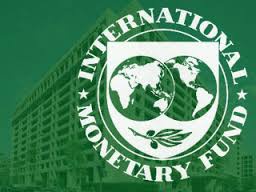
The International Monetary Fund has given the go-ahead for Ghana to float sovereign bonds on the international commercial market.
This maiden excursion by government into the international bonds market may secure up to $2 billion for growth acceleration.
Executive Directors of the IMF, who were in Accra this week to study the country?s development strategies, have endorsed the move which will raise capital for growth acceleration.
In an interview with The Statesman, Tom Scholar, the executive director representing the United Kingdom and the leader of the seven-member delegation, said the move will help Ghana raise the needed funds outside the fund to accelerate growth and development.
Ghana has already made significant moves towards floatation, and Mr Scholar announced that the IMF will now be supporting these efforts. He said a team from the fund will visit the country next month to discuss the details with Government officials.
Commercial borrowing through the issuance of sovereign bonds on the international capital market is one of the tools used by middle-income countries to raise money for investment in growth.
?Middle income countries issue bonds on the market to raise money for investment to improve the productive capacity of the economy such that the debt can be repaid and that is a normal function of middle income countries,? he said.
Mr Scholar however warned that the money should be invested in productive sectors of the economy to ensure growth and development. He also added that Ghana should make efforts not to pile up new debts after it has received debt forgiveness from the Bretton Woods institutions.
Speaking to The Statesman yesterday, Kwadwo Baah-Wiredu says Ghana is, however, not rushing on! to the international bonds market yet. The necessary preparatory steps ought to be first taken. The first, according to the Finance minister, was debt cancellation.
The second is to strengthen the ministry's Debt Management Unit. The third, ?We must also make our stock market strong.?
While shying away from putting a date on Ghana's entry onto the international money market, the Finance Minister gave a hint by saying Ghana's Poverty Reduction and Growth Strategy programme with the IMF expires in October, adding that preparing the country to be able to issue sovereign bonds is a natural progression from the ?policy signallling instrument? framework that Ghana has with ! the Bretton Wood institutions.
Yoofi Grant, an executive director of the country's leading financial service provider, Databank Financial Services, lauded Government?s effort in seeking to source for additional resources outside the Bretton Woods institutions for growth acceleration.
He explained that with the B+ credit rating, Ghana can engage the international capital market in a constructive way with its debt sustainability portfolio, which he says at the moment, looks good.
According to the financial analyst, the sustainability of a country's risks assessment determines the interest rates in sourcing for funds on the international bonds market.
This means that the interest rate in raising capital on the international bonds market is based on the risk level: the higher the risk, the higher the interest rate and to an extent who is lending the money, Yoofi explained.
The Deputy Minister for Finance and Economic Planning, Anthony Akoto Osei, last year told The Statesman that preparatory arrangements have already commenced to float sovereign bonds on the capital market.
Ghana was then waiting to scale the biggest hurdle of checks placed on it by the IMF; but now the fund has given the green light government will be able to move its plans forward quickly.
This attempt by Government to float sovereign bonds comes on the heels of an off-shore loan syndication facility of $850 million secured by COCOBOD towards the financing of cocoa purchases in the 2004 crop year.
This is the second largest non-oil credit facility in sub-Saharan Africa put together by 36 banks from 16 countries, which was substantially oversubscribed. President Kufuor said that for the five years that his Government had been in power, this was the first time ever the country was receiving such an array of directors of the board.
The Executive Board is made up of representatives of the 24 governments that control the fund.
President Kufuor said the delegation will not limit its interaction only to the government but would also interact with the citizenry to have adequate knowledge about the IMF. This he said will make way for a much stronger relati! onship. The President also added that Ghana would stay a loyal member of the fund.
The IMF group was in Ghana to study about the country's development strategy coupled with its track record of macro-economic stability and reforms aimed at improving growth and reducing poverty.